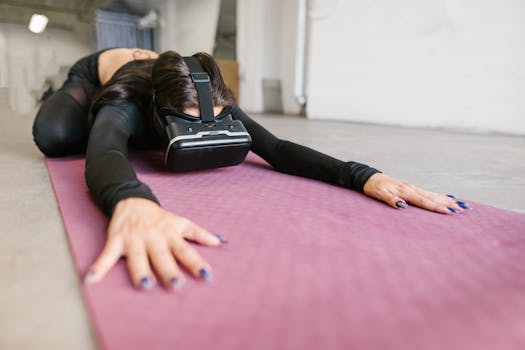Unlocking Happiness: The Mental Health Benefits of Regular Physical Activity
Takeaways: Regular physical activity is not just about keeping fit; it also plays a crucial role in enhancing mental well-being. From elevating your mood to reducing stress and anxiety, exercising regularly can be a game-changer for your mental health. So, lace up those sneakers and let’s dive into the amazing mental health benefits of staying active!
Hey there! So, let me share a little secret with you. When I first started exercising, I thought it was all about shedding some pounds or fitting into those jeans I love. But boy, was I in for a surprise! It turned out that the real treasure of regular physical activity lies in its incredible benefits for mental health. Trust me, if you’re not convinced yet, you will be after reading this!
The Mood Booster
Let’s talk about mood. We all have those days when we feel a bit low or just off. I remember one particularly gloomy week when everything seemed to drag me down. But then, I decided to go for a jog in the park. As I breathed in the fresh air and felt my feet pounding the pavement, I could literally feel my mood lifting. It was like a weight had been lifted off my shoulders!
Research backs this up, showing that exercise increases the production of neurotransmitters like serotonin, dopamine, and endorphins—often referred to as the ‘feel-good’ hormones. Regular physical activity can help alleviate feelings of depression and anxiety, making it a natural mood enhancer. Why pop a pill when you can take a jog?
Stress Relief
Let’s face it: life can be stressful. Between work, family, and everything in between, it sometimes feels overwhelming. But here’s where physical activity shines. Whenever I feel the pressures of daily life weighing me down, I hit the gym or even just take a brisk walk around my neighborhood. The act of moving my body helps to clear my mind and release pent-up tension.
Exercise reduces levels of the body’s stress hormones, such as adrenaline and cortisol. At the same time, it stimulates the production of endorphins, which are natural painkillers and mood elevators. So, the next time you’re feeling stressed, remember that a good workout can be your best friend.
Improved Sleep Quality
Who doesn’t love a good night’s sleep? I know I do! But I used to struggle with insomnia and restless nights. Ever since I incorporated regular physical activity into my routine, I’ve noticed a remarkable improvement in my sleep quality. It’s like my body has a natural rhythm now.
Exercise can help you fall asleep faster and deepen your sleep. Just make sure not to work out too close to bedtime, as it might have the opposite effect for some people. Aim for a sweet spot a few hours before you hit the hay, and watch how your sleep transforms!
Enhanced Self-Esteem
Let’s chat about confidence. When I first started exercising, I was a bit self-conscious. But with each workout, I noticed my body getting stronger, and my self-esteem began to soar. Regular physical activity can lead to improved body image and self-worth. It’s not just about losing weight; it’s about feeling good in your own skin.
As you set and achieve fitness goals, you’ll likely experience a sense of accomplishment that can boost your confidence. Whether it’s running that extra mile or lifting that heavier weight, every small victory counts!
Connecting with Others
Let’s not forget about the social aspect of exercise. Joining a fitness class or a running group has opened up a whole new world for me. I’ve met amazing people who share similar health goals, and it feels great to have a support system. Plus, social interactions can significantly improve mental health.
Engaging in group activities fosters a sense of community and belonging, which is essential for emotional well-being. So, whether you’re hitting the gym solo or joining a local sports league, remember that you’re not just working on your body; you’re also building connections.
FAQs
- How much exercise do I need for mental health benefits?
Most guidelines recommend at least 150 minutes of moderate aerobic activity each week, but even short bursts of activity can help boost your mood! - What types of exercises are best for mental health?
Anything that gets you moving! Whether it’s running, dancing, yoga, or even walking, find something you enjoy. - Can exercise really help with anxiety and depression?
Absolutely! Regular physical activity can be a powerful tool in managing symptoms of anxiety and depression. - What if I don’t have time to exercise?
Even small amounts of activity can be beneficial. Try incorporating movement into your daily routine, like taking the stairs or doing a short home workout. - How long before I see mental health benefits from exercise?
Many people report feeling better after just one session of exercise, but regular activity will maximize those benefits.






